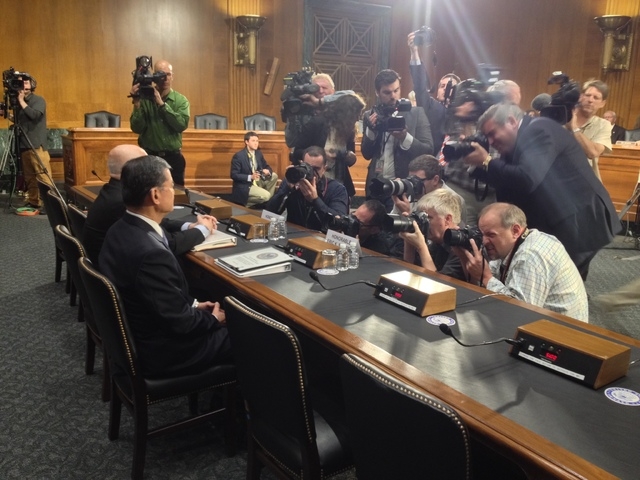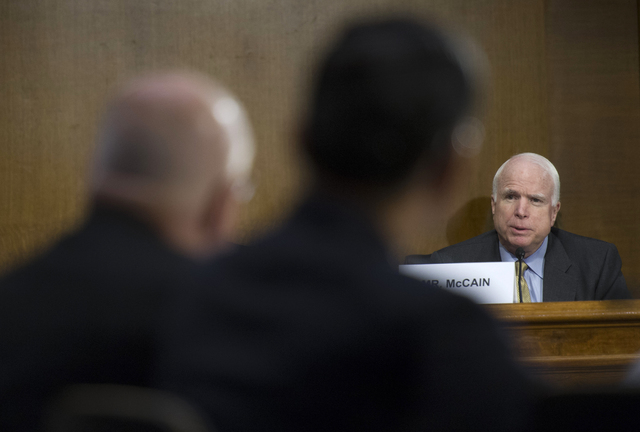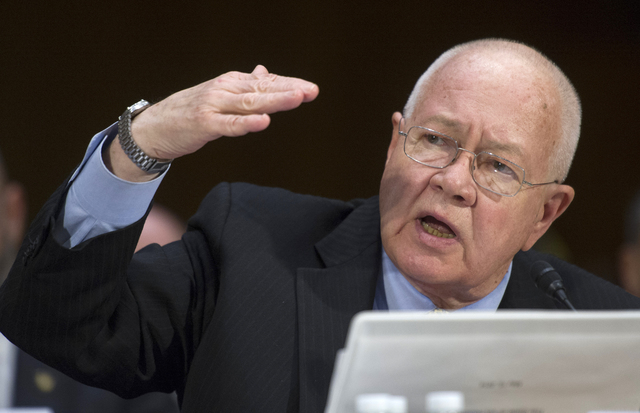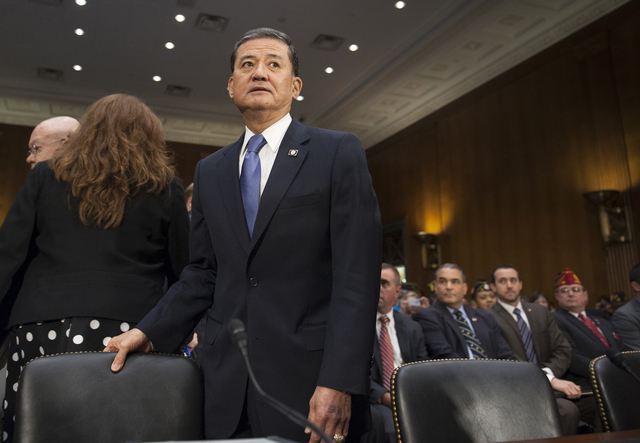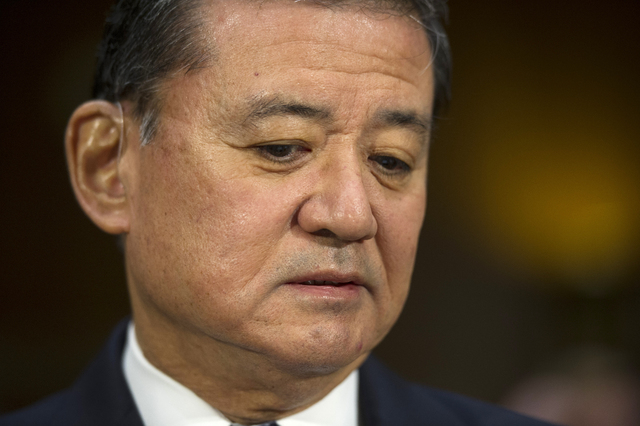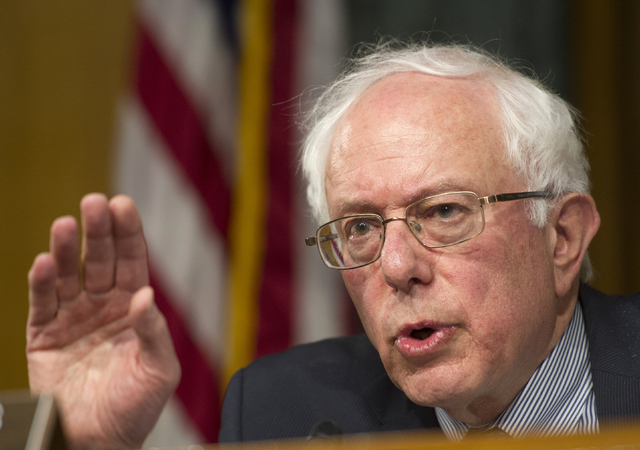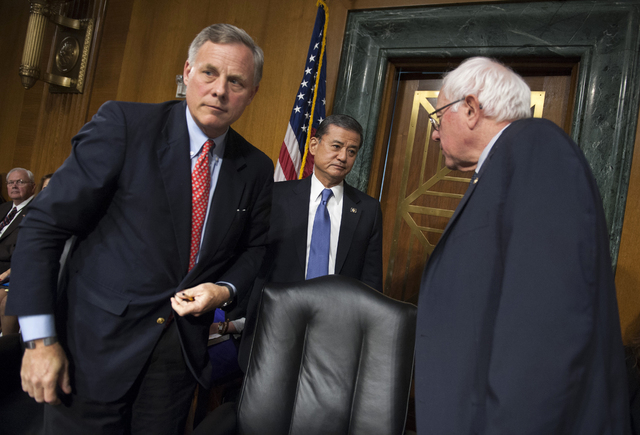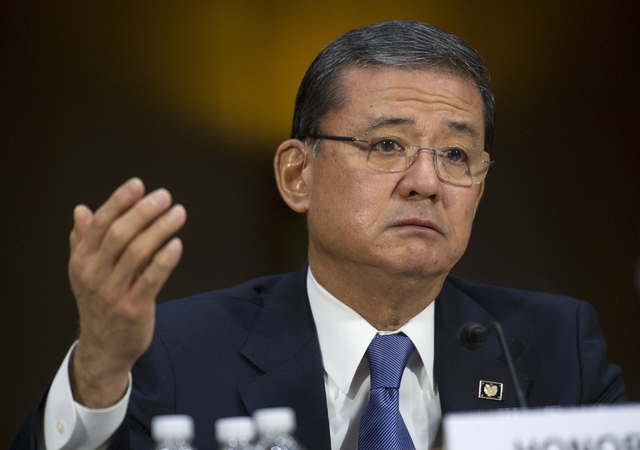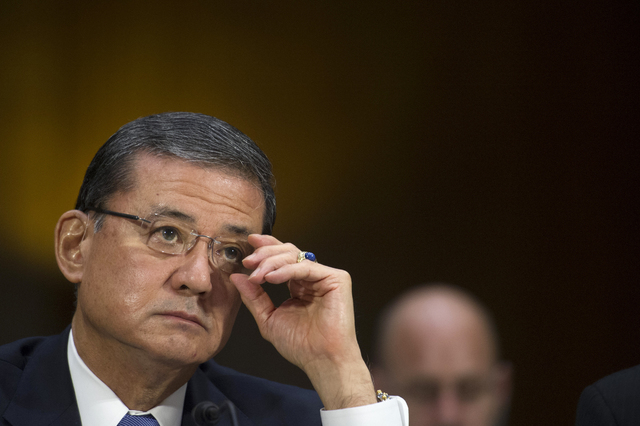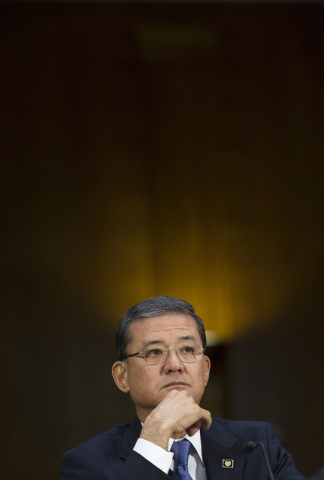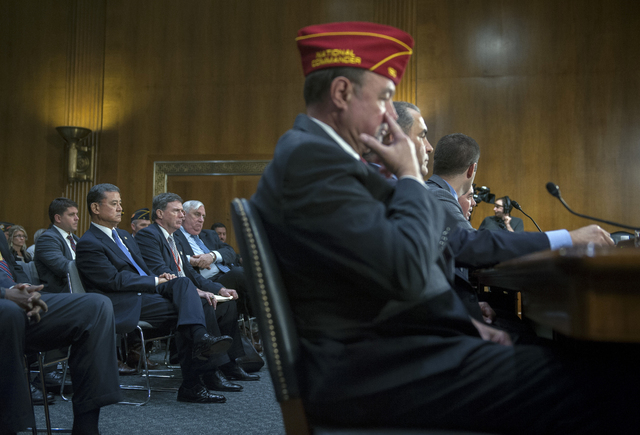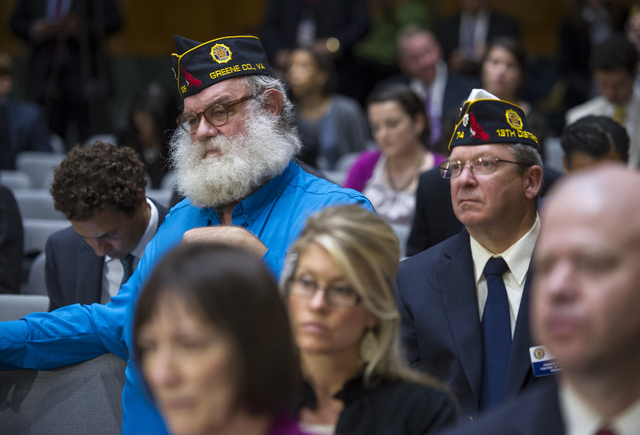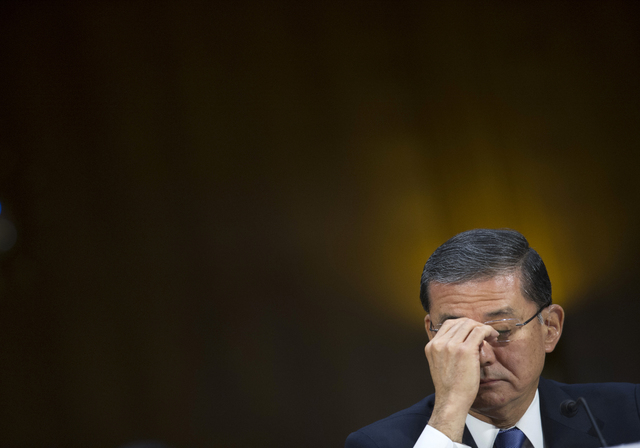Heller: VA leaders fail to hold officials accountable for flaws in Nevada
WASHINGTON — Top leaders of the Department of Veterans Affairs are failing to hold agency officials in Nevada accountable for flaws and shortcomings in providing service to local veterans, Sen. Dean Heller, R-Nev., charged Thursday in a hearing on the VA’s troubled health system.
Heller cited reports that a quarter of emergency patients at the North Las Vegas Medical Center wait more than six hours before seeing a doctor, a problem illustrated by the case of Sandi Niccum, an elderly blind veteran in pain whose long wait last October triggered an investigation of emergency room practices.
The emergency room “in itself is too small to meet demand,” Heller said, a problem acknowledged by the VA as it works on a $16 million expansion.
The Nevada Republican also said he has had difficulty determining whether there has been any improvement at the VA’s regional office in Reno, which was found to be the slowest at processing disability claims.
“At some point I have to ask if these problems in Nevada are a demonstration of failed leadership at the top,” Heller said. “VA leadership is not holding local officials accountable, and it’s failing to care for those who sacrificed on our behalf.”
Heller directed his criticism at VA Secretary Eric Shinseki, a former Army general who testified Thursday before the Senate Committee on Veterans Affairs about a growing scandal centered on allegations of treatment delays and preventable deaths at the Phoenix veterans hospital.
Senators cited further reports that VA hospitals and clinics in other parts of the country were altering records of patient appointments to hide long waits for veterans.
The VA has insisted such a problem does not exist at the North Las Vegas medical center and clinics in Southern Nevada. Heller and Rep. Dina Titus, D-Nev., who serves on the House Committee on Veterans Affairs, say they have heard no allegations of record-doctoring at the facilities.
Shinseki ordered audits of VA medical centers nationwide in the wake of the reports, which are not new but which exploded when associated with the deaths of as many as 40 veterans who sought care at the Arizona hospital. The VA has acknowledged the possibility that 23 patient deaths may be tied to difficulties obtaining timely appointments.
Heller asked Shinseki why he should not resign.
“I tell you, senator, I came here to make things better for veterans, that was my appointment by the president,” Shinseki responded, “This is not a job. I am here to accomplish a mission I think they critically deserve and need. I can tell you over the past five years we have done a lot to make things better. We are not done yet.”
Shinseki was accompanied by Dr. Robert Petzel, the VA’s chief medical officer.
Regarding Niccum, Petzel told Heller he had reviewed the inspector general’s report on the blind veteran’s experience in the North Las Vegas emergency room in October. The auditors found she waited four hours and 45 minutes before seeing a doctor and was not checked periodically during her wait as required by hospital procedure.
“She did wait too long, and there were others that waited too long in the emergency room,” Petzel said.
Investigators concluded the episode did not contribute to Niccum’s death several weeks later in a Las Vegas care home. But, Petzel said, “it was inappropriate that a service-connected blind veteran should have to wait that long in our emergency room.”
“I don’t think any veteran, whatever their condition, should have to wait that long at any of our facilities, whether it is an emergency room or a clinic,” Shinseki added.
Shinseki said he believed there have been improvements in disability claims processing by the VA regional office in Reno. “I’m told those numbers are down,” he said.
But Heller said the current average of 355 days to complete a claim was three times longer than the national average.
Shinseki told senators he was angry and saddened by allegations of treatment delays and preventable deaths.
“Any adverse event for a veteran within our care is one too many,” Shinseki said. “We can and we must do better.”
Appearing before the panel amid calls from some Republicans and veterans groups to resign, Shinseki vowed to hold employees accountable for any misconduct.
Shinseki has said he welcomes a White House review of his beleaguered department after allegations the Phoenix hospital maintained a secret waiting list to hide lengthy delays for sick veterans. A former clinic director says up to 40 veterans may have died while awaiting treatment at the Phoenix facility.
“If allegations about manipulation of appointment scheduling are true, they are completely unacceptable — to veterans, to me and to our dedicated VA employees,” Shinseki said.
The hearing before the Senate Veterans Affairs Committee comes as President Barack Obama has assigned White House deputy chief of staff Rob Nabors to work on a review of patient safety rules and the scheduling of patient appointments. The move, announced late Wednesday, signals Obama’s growing concern over problems at the VA. Problems similar to those that surfaced in Phoenix have been reported in other states.
Sen. Patty Murray, D-Wash., said the hearing “needs to be a wake-up call for the department,” noting that outside reviews have outlined problems with wait times and quality of care for at least 14 years.
“It’s extremely disappointing that the department has repeatedly failed to address wait times for health care,” Murray said.
Murray told Shinseki she believes he takes the allegations seriously and wants to do the right thing, “but we have come to the point where we need more than good intentions.”
The Associated Press contributed to this report. Contact Stephens Washington Bureau Chief Steve Tetreault at 202-783-1760 or STetreault@stephensmedia.com Follow @STetreaultDC on Twitter



